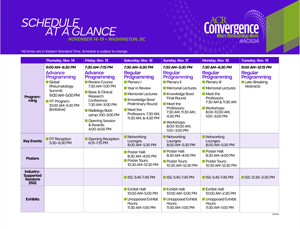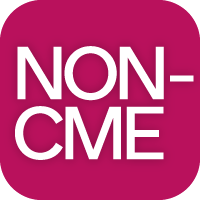Back
Poster Session A
Systemic lupus erythematosus (SLE)
Session: (0084–0097) SLE – Animal Models Poster
0088: Profound B Cell Depletion and Repopulation with Predominantly Naïve B Cells in Non-Human Primates Achieved Through a Novel In Vivo CD8-Targeted Lipid Nanoparticle mRNA CAR
Saturday, November 16, 2024
10:30 AM – 12:30 PM Eastern Time
Location: Hall C
- AF
Aric Frantz, PhD, DVM
Capstan Therapeutics
San Diego, CA, United States
Abstract Poster Presenter(s)
Aric Frantz1, Romina Riener1, Annabel Wang1, Yanjie Bao1, Yan Zhang1, Daiki Matsuda1, John Li1, David Chu1, Theresa Hunter1, Qian Chen Yong1, Michelle Nguyen1, Stuart Sievers1, Duy Nguyen1, Scott Roberts1, Diana Galvan1, Jerel Boyd Vega1, Matthew Butcher1, Stanley Zhang1, Stephen Flynn1, Yi Kuo1, Steven Tanis1, John Scholler2, Gregor Adams1, Michael Rosenzweig1, Priya Karmali1, Adrian Bot1, Carl June2 and Haig Aghajanian1, 1Capstan Therapeutics, San Diego, CA, 2University of Pennsylvania Perelman School of Medicine, Philadelphia, PA
Background/Purpose: Ex vivo chimeric antigen receptor (CAR) T cell therapies have revolutionized cancer treatment and are demonstrating durable clinical efficacy in various autoimmune disease indications. Despite the success of current CAR T therapies, challenges in cell manufacturing, scalability, utilization of integrating viral vectors, and the need for lymphodepleting chemotherapy highlight the necessity for an off-the-shelf in vivo CAR technology applicable for broader use. To that aim, we developed an in vivo anti-CD19 CAR mRNA product delivered by a CD8-targeted lipid nanoparticle (tLNP) (CPTX2309) and evaluated the activity of a cross reactive anti-CD20 CAR surrogate (CPTX2309-S) in non-human primates (NHPs).
Methods: Twenty cynomolgus macaques were intravenously administered escalating doses of CPTX2309-S, which showed comparable activity with CPTX2309 in vitro. A dose range of 0.1 – 1.5 mg/kg was evaluated for safety and tolerability, B cell depletion in blood and tissues, as well as B cell repopulation (0.3 – 1.5 mg/kg) using a compact dose regimen (3x q72hr).
Results: CPTX2309-S administration resulted in robust, dose-dependent, and transient CAR T cell engineering in vivo, with CAR expression of up to 85% on CD8+ T cells and CD8+ natural killer (NK) cells. There was also CAR expression on monocytes, but minimal transfection of CD4+ T cells. CPTX2309-S had an excellent safety and tolerability profile at doses of 0.1 – 1.0 mg/kg x3 and led to rapid and complete depletion of peripheral blood B cells as early as 6 hours post first dose, even at 0.1 mg/kg. B cells in tissues were significantly reduced in a dose dependent manner upon analysis after the final dose, with comparable deep B cell depletion observed at doses of 0.5 mg/kg and above. B cell recovery started within 2-3 weeks after depletion, and the repopulating B cells were predominantly naive (CD27- IgD+), with very few post-switch memory B cells (CD27+ IgD-). This contrasts with the pre-dose condition, which featured a higher presence of switched memory B cells. This return of mostly naïve B cells paralleled the observation of returning B cells in reports of autoimmune disease patients treated with ex vivo CD19 CAR T cells (Müller, 2024), indicative of an ‘immune reset’.
Conclusion: CPTX2309 is a non-viral in vivo CAR therapy that brings together the unprecedented potency of CAR constructs with the scalability and feasibility of this novel tLNP-mRNA platform. CPTX2309-S rapidly and efficiently delivers a therapeutic anti-CD20 CAR mRNA payload to cynomolgus macaque effector T cells in vivo, resulting in highly functional CAR-engineered T cells and deep B cell depletion that is transient and featured returning cells that were predominantly of a naïve phenotype. These findings demonstrate the feasibility of this novel in vivo CAR technology and support its translation to clinic, highlighting the potential to reset the immune system in patients with B cell involved autoimmune diseases to achieve a durable, drug-free clinical response
A. Frantz: None; R. Riener: None; A. Wang: None; Y. Bao: None; Y. Zhang: None; D. Matsuda: None; J. Li: None; D. Chu: None; T. Hunter: None; Q. Yong: None; M. Nguyen: None; S. Sievers: None; D. Nguyen: None; S. Roberts: None; D. Galvan: None; J. Boyd Vega: None; M. Butcher: None; S. Zhang: None; S. Flynn: None; Y. Kuo: None; S. Tanis: None; J. Scholler: None; G. Adams: None; M. Rosenzweig: None; P. Karmali: None; A. Bot: None; C. June: Gilead, 10, Novartis, 10; H. Aghajanian: Pfizer, 6.
Background/Purpose: Ex vivo chimeric antigen receptor (CAR) T cell therapies have revolutionized cancer treatment and are demonstrating durable clinical efficacy in various autoimmune disease indications. Despite the success of current CAR T therapies, challenges in cell manufacturing, scalability, utilization of integrating viral vectors, and the need for lymphodepleting chemotherapy highlight the necessity for an off-the-shelf in vivo CAR technology applicable for broader use. To that aim, we developed an in vivo anti-CD19 CAR mRNA product delivered by a CD8-targeted lipid nanoparticle (tLNP) (CPTX2309) and evaluated the activity of a cross reactive anti-CD20 CAR surrogate (CPTX2309-S) in non-human primates (NHPs).
Methods: Twenty cynomolgus macaques were intravenously administered escalating doses of CPTX2309-S, which showed comparable activity with CPTX2309 in vitro. A dose range of 0.1 – 1.5 mg/kg was evaluated for safety and tolerability, B cell depletion in blood and tissues, as well as B cell repopulation (0.3 – 1.5 mg/kg) using a compact dose regimen (3x q72hr).
Results: CPTX2309-S administration resulted in robust, dose-dependent, and transient CAR T cell engineering in vivo, with CAR expression of up to 85% on CD8+ T cells and CD8+ natural killer (NK) cells. There was also CAR expression on monocytes, but minimal transfection of CD4+ T cells. CPTX2309-S had an excellent safety and tolerability profile at doses of 0.1 – 1.0 mg/kg x3 and led to rapid and complete depletion of peripheral blood B cells as early as 6 hours post first dose, even at 0.1 mg/kg. B cells in tissues were significantly reduced in a dose dependent manner upon analysis after the final dose, with comparable deep B cell depletion observed at doses of 0.5 mg/kg and above. B cell recovery started within 2-3 weeks after depletion, and the repopulating B cells were predominantly naive (CD27- IgD+), with very few post-switch memory B cells (CD27+ IgD-). This contrasts with the pre-dose condition, which featured a higher presence of switched memory B cells. This return of mostly naïve B cells paralleled the observation of returning B cells in reports of autoimmune disease patients treated with ex vivo CD19 CAR T cells (Müller, 2024), indicative of an ‘immune reset’.
Conclusion: CPTX2309 is a non-viral in vivo CAR therapy that brings together the unprecedented potency of CAR constructs with the scalability and feasibility of this novel tLNP-mRNA platform. CPTX2309-S rapidly and efficiently delivers a therapeutic anti-CD20 CAR mRNA payload to cynomolgus macaque effector T cells in vivo, resulting in highly functional CAR-engineered T cells and deep B cell depletion that is transient and featured returning cells that were predominantly of a naïve phenotype. These findings demonstrate the feasibility of this novel in vivo CAR technology and support its translation to clinic, highlighting the potential to reset the immune system in patients with B cell involved autoimmune diseases to achieve a durable, drug-free clinical response
A. Frantz: None; R. Riener: None; A. Wang: None; Y. Bao: None; Y. Zhang: None; D. Matsuda: None; J. Li: None; D. Chu: None; T. Hunter: None; Q. Yong: None; M. Nguyen: None; S. Sievers: None; D. Nguyen: None; S. Roberts: None; D. Galvan: None; J. Boyd Vega: None; M. Butcher: None; S. Zhang: None; S. Flynn: None; Y. Kuo: None; S. Tanis: None; J. Scholler: None; G. Adams: None; M. Rosenzweig: None; P. Karmali: None; A. Bot: None; C. June: Gilead, 10, Novartis, 10; H. Aghajanian: Pfizer, 6.



